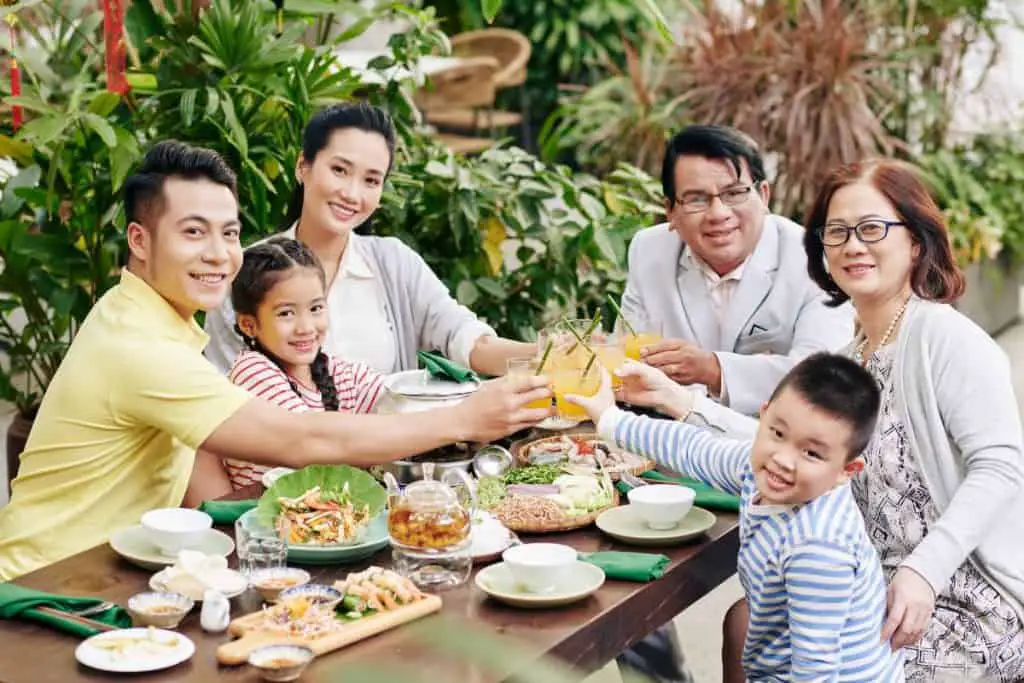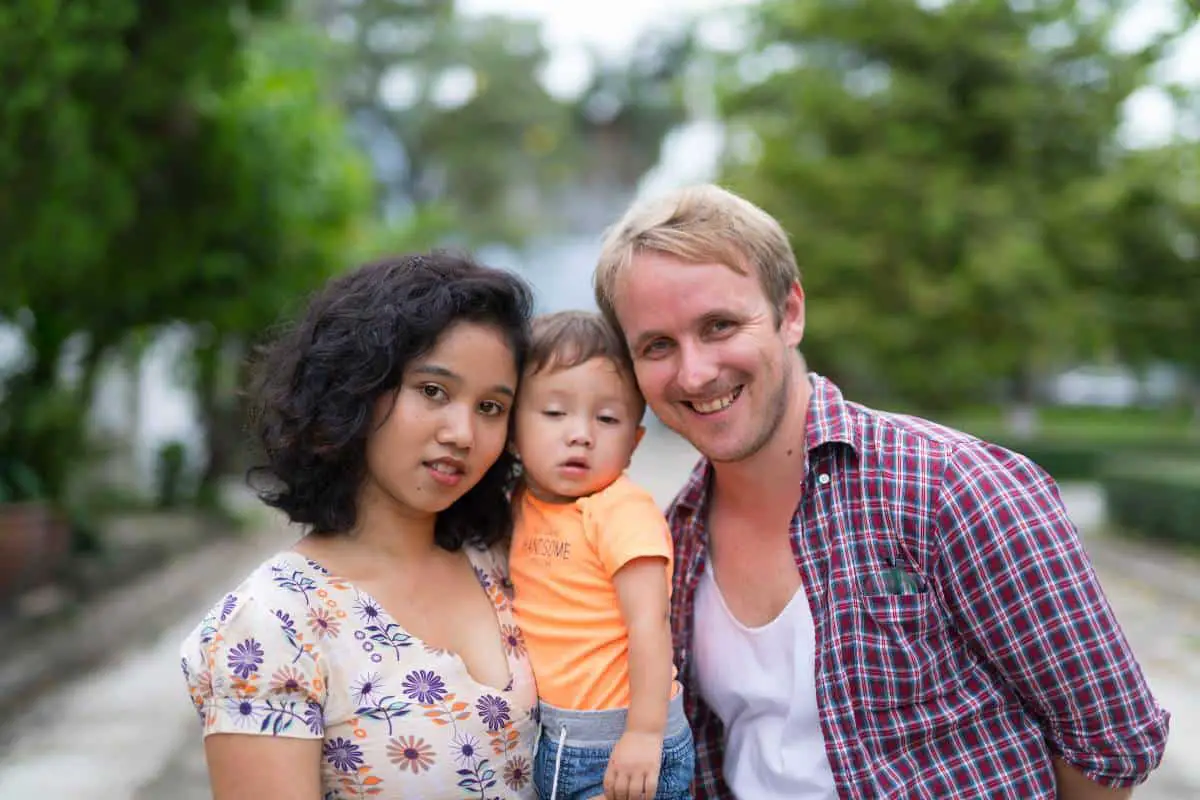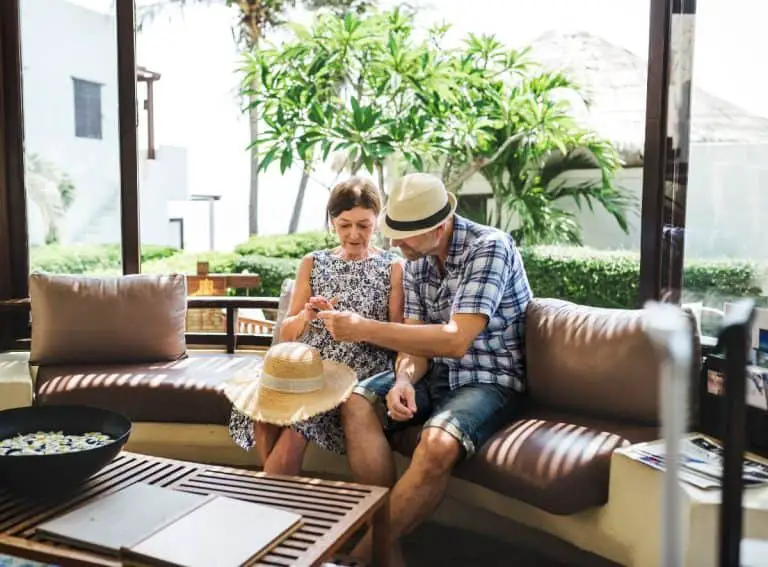A Guide To Thai Family Values Expats
Thailand, known as the “Land of Smiles,” has become an increasingly popular destination for expats seeking a new way of life. At BetterLivingAsia.com, we understand that moving to a new country can be both exciting and challenging, especially when it comes to navigating cultural differences. As an expat living in Thailand, understanding and embracing Thai Family Values Expats is essential for a successful and fulfilling experience. In this article, we’ll explore the key aspects of Thai family life, provide insights on navigating cultural differences, and offer tips for building meaningful relationships with Thai families. Whether you’re considering retiring, working, or starting a business in Thailand, this guide will help you better understand and appreciate the rich cultural tapestry of Thai family life.
Key Takeaways
- Understanding Thai family values is crucial for successful integration as an expat
- Thai families emphasize respect, harmony, and collectivism, influenced by Buddhist beliefs
- Expats can build meaningful relationships with Thai families by participating in community events, showing interest in culture, and overcoming cultural barriers
Thai Family Structure and Dynamics
Thai families are often characterized by their close-knit, extended family households and intergenerational living arrangements. It’s not uncommon for grandparents, parents, and children to live together under one roof, fostering strong bonds and a sense of unity. Within these households, there is a clear hierarchy and deep respect for elders, who are seen as sources of wisdom and guidance.
Gender roles and expectations within Thai families can be more traditional compared to Western norms. Women often take on the primary responsibilities of managing the household and caring for children, while men are expected to provide for the family financially. However, it’s important to note that these roles are gradually evolving, particularly in urban areas and among younger generations.
One of the most notable aspects of Thai family life is the strong emphasis on family obligations and support systems. Children are expected to care for their aging parents, and siblings often provide emotional and financial support to one another. This sense of duty and interdependence helps to create a tight-knit family unit that can weather challenges and celebrate successes together.
- Extended family households: Grandparents, parents, and children often live together
- Respect for elders: Elders are seen as sources of wisdom and guidance
- Traditional gender roles: Women manage household and childcare, while men provide financially
- Family obligations: Children care for aging parents, and siblings support each other
Key Thai Family Values and Customs (400 words)
At the heart of Thai family life are several key values and customs that shape daily interactions and long-term relationships. Respect and filial piety are paramount, with children taught from a young age to honor their parents and elders through their actions and words. This respect extends beyond the immediate family, with younger individuals expected to show deference to older members of the community.
Harmony and conflict avoidance are also highly prized within Thai families. There is a strong emphasis on maintaining peaceful relationships and preventing direct confrontation, which can be achieved through the use of indirect communication and a focus on preserving “face.” Expats may need to adjust their communication style to navigate these cultural nuances effectively.
Collectivism and the importance of family reputation are other key aspects of Thai family life. Individuals are expected to prioritize the needs and goals of the family over their own personal desires, and actions that could bring shame or dishonor to the family are strongly discouraged. This sense of collective identity and responsibility can be a significant departure from the more individualistic mindset often found in Western cultures.
Buddhist influences play a significant role in shaping Thai family values and customs. The concepts of karma, merit-making, and the importance of living an ethical life are deeply ingrained in Thai culture and often guide family decision-making and interactions. Participating in religious ceremonies and making offerings at temples are common practices that help to strengthen family bonds and connect with spiritual traditions.
Family dining customs and the significance of food in Thai culture cannot be overstated. Mealtimes are often seen as opportunities for family members to come together, share stories, and enjoy each other’s company. The act of sharing food is a powerful symbol of love, generosity, and nurturing within Thai families.
Navigating Family-Related Cultural Differences as an Expat
As an expat living in Thailand, navigating family-related cultural differences can be challenging at times. One of the most significant adjustments may be adapting to Thai communication styles and the concept of “saving face.” Thai people often use indirect communication to avoid causing offense or embarrassment, which can be difficult for expats accustomed to more direct approaches. Learning to read between the lines and use subtle cues can help bridge this cultural gap.
Parenting approaches and child-rearing practices in Thailand may also differ from what expats are used to in their home countries. Thai parents often prioritize obedience, respect for authority, and academic achievement, while Western parenting styles may place greater emphasis on independence and self-expression. Finding a balance that honors both cultural perspectives can be an ongoing process for expat families.
When it comes to marriage, divorce, and relationship norms, Thai culture tends to be more conservative than many Western societies. Arranged marriages, while less common today, are still practiced in some families, and divorce carries a greater stigma than in many Western countries. Expats should be mindful of these cultural differences when entering into relationships with Thai partners or offering advice to Thai friends.
Adapting to Thai family celebrations and holidays is an essential part of integrating into the local culture. Festivities such as Songkran (Thai New Year), Loy Krathong, and various Buddhist holidays provide opportunities for expats to experience the richness of Thai traditions and strengthen bonds with Thai families. Participating in these events with an open mind and a willingness to learn can help expats feel more connected to their adopted home.

Raising Expat Children in Thailand
For expat families with children, navigating the Thai education system and raising kids in a new cultural environment can be both rewarding and challenging. Thailand offers a wide range of international schools and education options, catering to different learning styles, languages, and curricula. Researching and choosing the right school for your child’s needs is a crucial step in ensuring a smooth transition and a positive educational experience.
Teaching children Thai language, culture, and manners is another important consideration for expat parents. Enrolling children in Thai language classes, encouraging playdates with Thai friends, and actively seeking opportunities to engage with local customs can help foster a deeper understanding and appreciation of Thai culture. At the same time, it’s essential to balance this cultural immersion with efforts to maintain a connection to your family’s own heritage and traditions.
Balancing cultural identity and integration is a common challenge for expat families. While it’s important to embrace Thai culture and help children adapt to their new environment, it’s equally crucial to preserve a sense of your own family’s unique identity. Celebrating holidays from your home country, maintaining language skills, and staying connected with friends and family abroad can help children develop a strong sense of self and belonging.
Childcare and domestic help considerations are another important aspect of raising expat children in Thailand. Many expat families choose to hire live-in or live-out domestic helpers to assist with childcare, cooking, and household chores. While this arrangement can be beneficial in terms of providing support and allowing parents to balance work and family life, it’s essential to establish clear expectations, boundaries, and communication to ensure a positive and respectful working relationship.
- Research and choose the right international school for your child’s needs
- Encourage Thai language learning and cultural immersion through classes and playdates
- Balance cultural integration with maintaining a connection to your family’s heritage
- Consider childcare and domestic help options, establishing clear expectations and communication
Building Relationships with Thai Families as an Expat
Building strong relationships with Thai families is key to a fulfilling and enriching expat experience in Thailand. One of the best ways to connect with locals is by participating in community events and festivals. Joining in the celebrations of Songkran, Loy Krathong, or local temple fairs provides opportunities to interact with Thai families, learn about their traditions, and foster a sense of belonging in your new community.
Visiting temples and embracing spirituality is another way to deepen your understanding of Thai culture and build relationships with local families. Many Thai families regularly visit temples to make offerings, meditate, or seek guidance from monks. Showing an interest in and respect for these spiritual practices can help bridge cultural gaps and demonstrate your willingness to engage with Thai customs.
Consistently showing interest in Thai culture and traditions is essential for building lasting relationships with Thai families. Taking the time to learn about Thai history, art, cuisine, and social norms demonstrates your commitment to understanding and appreciating the culture. Attend local workshops, try new foods, and engage in conversations about Thai customs to show your genuine curiosity and respect.
Overcoming language and cultural barriers can be challenging, but it’s a crucial part of building meaningful relationships with Thai families. Making an effort to learn basic Thai phrases, using non-verbal communication, and approaching interactions with patience and humility can go a long way in fostering positive connections. Remember that misunderstandings are a natural part of the cross-cultural experience, and approaching them with a sense of humor and a willingness to learn can help strengthen bonds with Thai friends and families.
Thai Family Life in Different Regions
Thailand is a diverse country with distinct regional differences that influence family life and customs. Understanding these variations can help expats better navigate and appreciate the nuances of Thai culture in different parts of the country.
In urban areas, such as Bangkok and Chiang Mai, family life may be more fast-paced and influenced by modern, cosmopolitan values. Extended family households are less common, and nuclear families may prioritize individual pursuits and career aspirations. However, the core values of respect, harmony, and filial piety still play a significant role in urban Thai families.
In contrast, rural areas often maintain more traditional family structures and values. Extended family households are more prevalent, and the sense of community and interdependence is stronger. Agricultural and seasonal rhythms may dictate family life, with greater emphasis on collective labor and shared responsibilities.
Regional cultural variations can also impact family life and customs. For example, in the northeastern region of Isaan, which has close cultural ties to Laos, families may speak a different dialect and have unique culinary traditions. In the southern provinces, where Islam is more prevalent, family life may be influenced by religious practices and gender norms that differ from those in predominantly Buddhist areas.
As an expat family, adapting to local customs and traditions is essential for successful integration and building meaningful relationships with Thai families. Taking the time to learn about the specific cultural norms and practices of the region where you live can help you navigate family-related interactions with greater ease and understanding.
- Urban families may prioritize individual pursuits and be influenced by modern values
- Rural families often maintain traditional structures and emphasize community interdependence
- Regional cultural variations, such as in Isaan and the southern provinces, impact family life and customs
- Adapting to local customs and traditions is essential for successful integration as an expat family

Expat Family Support Networks in Thailand
Living abroad can be challenging, and having a strong support network is crucial for the well-being and success of expat families in Thailand. Fortunately, there are numerous expat community groups and resources available to help families connect, share experiences, and navigate the challenges of life in a new country.
Joining online forums, Facebook groups, and expat clubs can provide valuable opportunities to network with other families, seek advice, and participate in social events. Many of these groups are tailored to specific interests, such as parenting, education, or business, allowing expats to connect with like-minded individuals and access relevant resources.
Balancing integration with maintaining connections to your home culture is an essential aspect of expat family life. While it’s important to embrace Thai culture and build relationships with local families, it’s equally crucial to preserve ties to your own heritage and traditions. Expat support networks can help families find this balance by providing opportunities to celebrate holidays, share cultural experiences, and maintain language skills.
When addressing challenges and seeking support, expat families should not hesitate to reach out to their networks for guidance and assistance. Whether it’s navigating the Thai healthcare system, finding suitable schools, or dealing with cultural misunderstandings, experienced expats and support groups can offer valuable insights and resources to help families overcome obstacles and thrive in their new environment.
- Join online forums, Facebook groups, and expat clubs to connect with other families and access resources
- Balance integration with maintaining connections to your home culture through expat support networks
- Seek guidance and assistance from experienced ex-pats and support groups when facing challenges
Thai Perspectives on Expat Families
Understanding Thai perspectives on expat families is essential for fostering mutual understanding and respect between locals and foreigners. While Thai people are generally known for their warmth and hospitality, there may be some common perceptions and stereotypes that expats should be aware of.
Some Thais may view expat families as wealthy, privileged, and somewhat isolated from local culture. These perceptions can be influenced by the fact that many expats live in gated communities, send their children to international schools, and have lifestyles that differ from the average Thai family.
To counter these stereotypes and foster positive relationships, expat families should make an effort to engage with local communities, learn about Thai customs, and demonstrate respect for Thai culture. Participating in community events, supporting local businesses, and showing an interest in Thai language and traditions can help break down barriers and promote mutual understanding.
Learning from Thai families and their values is another way for expats to foster positive connections and personal growth. Thai families often prioritize harmony, respect, and the collective good over individual desires, and these values can offer valuable lessons for expats seeking to navigate the challenges of life abroad. By observing and embracing the best aspects of Thai family life, expats can enrich their own experiences and contribute to a more harmonious and understanding community.
FAQs
What are the most important Thai family values that expats should be aware of?
Respect for elders, harmony, collectivism, and filial piety are key Thai family values that expats should understand and embrace.
How can expats navigate cultural differences in parenting styles when raising children in Thailand?
Expats can find a balance between Thai and Western parenting styles by encouraging respect and academic achievement while also fostering independence and self-expression.
What are some common Thai perspectives on expat families, and how can expats foster mutual understanding and respect?
Some Thais may view expat families as privileged and isolated, but expats can counter these stereotypes by engaging with local communities and demonstrating respect for Thai culture.
How do family dynamics and values differ between urban and rural areas in Thailand?
Urban families may prioritize individual pursuits and be influenced by modern values, while rural families often maintain traditional structures and emphasize community interdependence.
What lessons can expat families learn from Thai families and their values?
Expat families can learn from Thai families’ emphasis on harmony, respect, and the collective good, enriching their own experiences and contributing to a more harmonious community.
Conclusion
Embracing Thai family values is a critical aspect of a successful and fulfilling expat experience in the Land of Smiles. By understanding and respecting the unique cultural norms, traditions, and perspectives that shape Thai family life, expats can build meaningful relationships, foster a sense of belonging, and navigate the challenges of living abroad with greater ease.
At BetterLivingAsia.com, we encourage expats to approach their new lives in Thailand with an open mind, a willingness to learn, and a commitment to engaging with local communities. By doing so, expats can create a rich and rewarding experience for themselves and their families.






